Faith Life & Learning and Teaching News
Curriculum Updates in English, Mathematics, Faith, Discovery & Inquiry

Faith Life & Learning and Teaching News
Curriculum Updates in English, Mathematics, Faith, Discovery & Inquiry
As we begin a new term, renewed and reinvigorated, we remember that Easter is not just a day that we have already celebrated, but a season of 50 days from Easter to Pentecost Sunday when we continue to celebrate the essence of our faith – the resurrection of Jesus. After Lent’s forty days of preparation for Easter, it would be anti-climatic to celebrate the feast of Easter for only one day. Jesus is risen! He is alive!
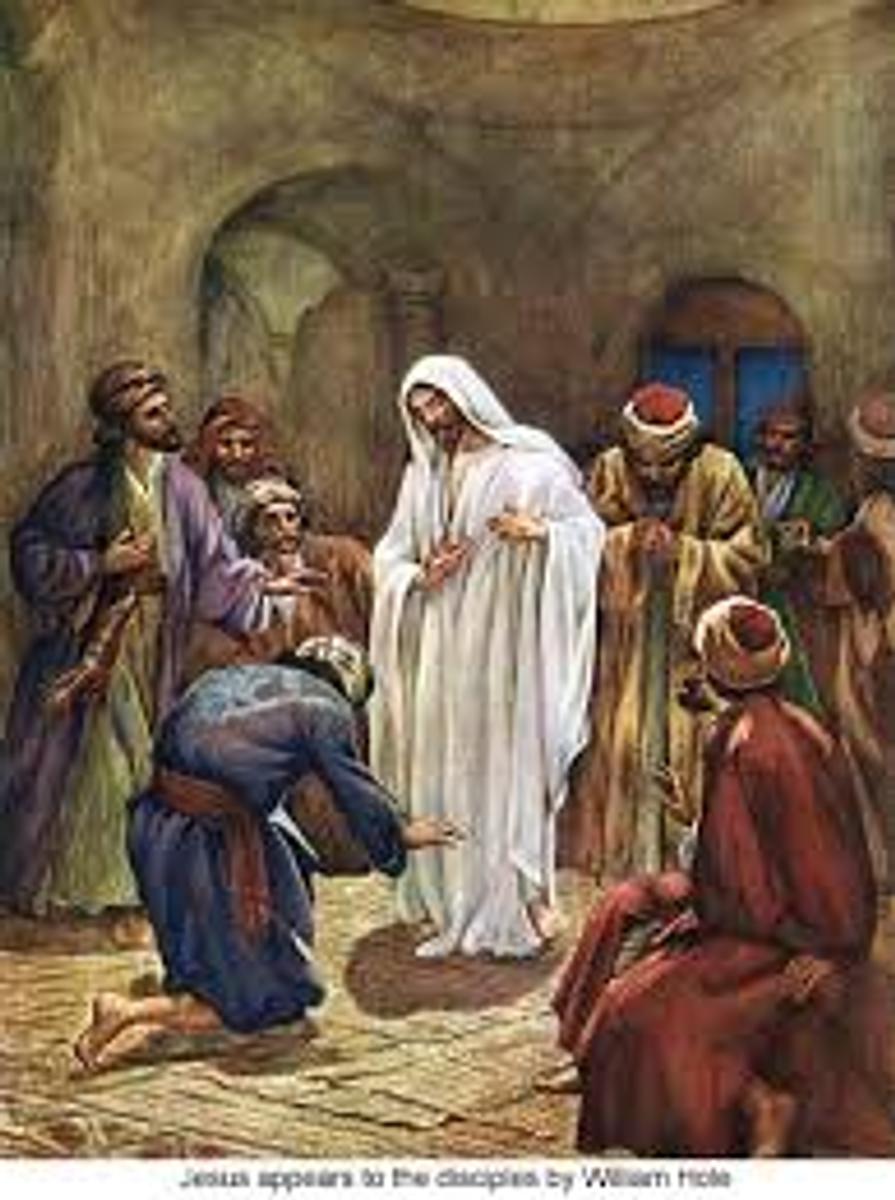

The first words Jesus said when He appeared to his Apostles was “Peace be with you”.
"Peace be with you" when he appeared to his apostles held both immediate and profound spiritual significance, bringing comfort, assurance, and commissioning them for their role in spreading the message of the Gospel. We can use Jesus' words "Peace be with you" as a daily reminder that we can extend goodwill to others, foster harmony in our relationships and communities.
God of our journey,
God of hope, we give you thanks and praise,
as we gather to begin a new term together.
May all who are part of this community
find a welcome place to grow and be.
Especially at this Easter time,
give us the grace to begin our journey
with peace, hope and joy.
This we pray in Jesus’ name.
Amen


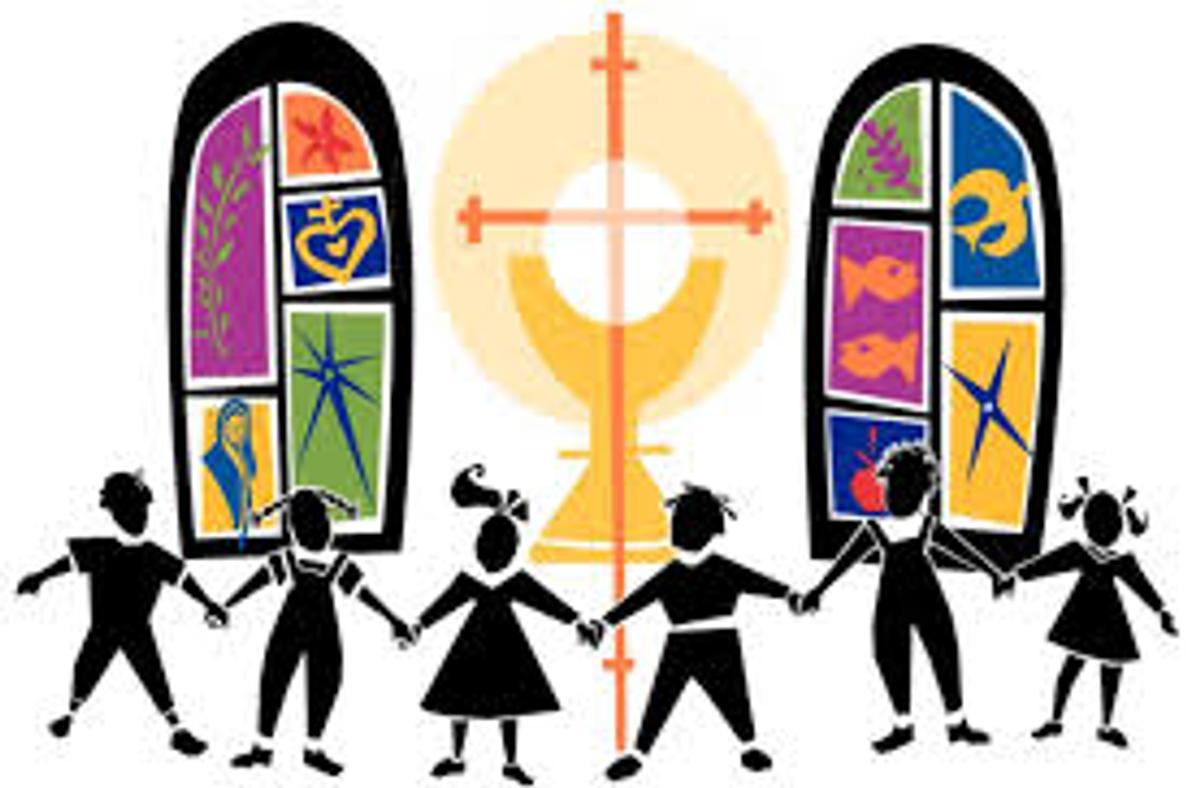

Year 6: Wednesday 1st May
Prep: Friday 10th May
Year 1: Friday 17th May
Year 2: Friday 24th May
Year 3: Friday 31st May
Year 4: Friday 7th June
Year 5: Friday 21st June
Sacred Heart and St Joseph's Parish Mass: Friday 14th June
What a way to start the term! The students had an amazing time at camp last week. Thank you the Therese, Kristian, Kim, Virginia and Anthony for the for the hard work and time you put in to make the camp so successful!
Check out all the fun here:
Wednesday 22nd-Friday 24th May
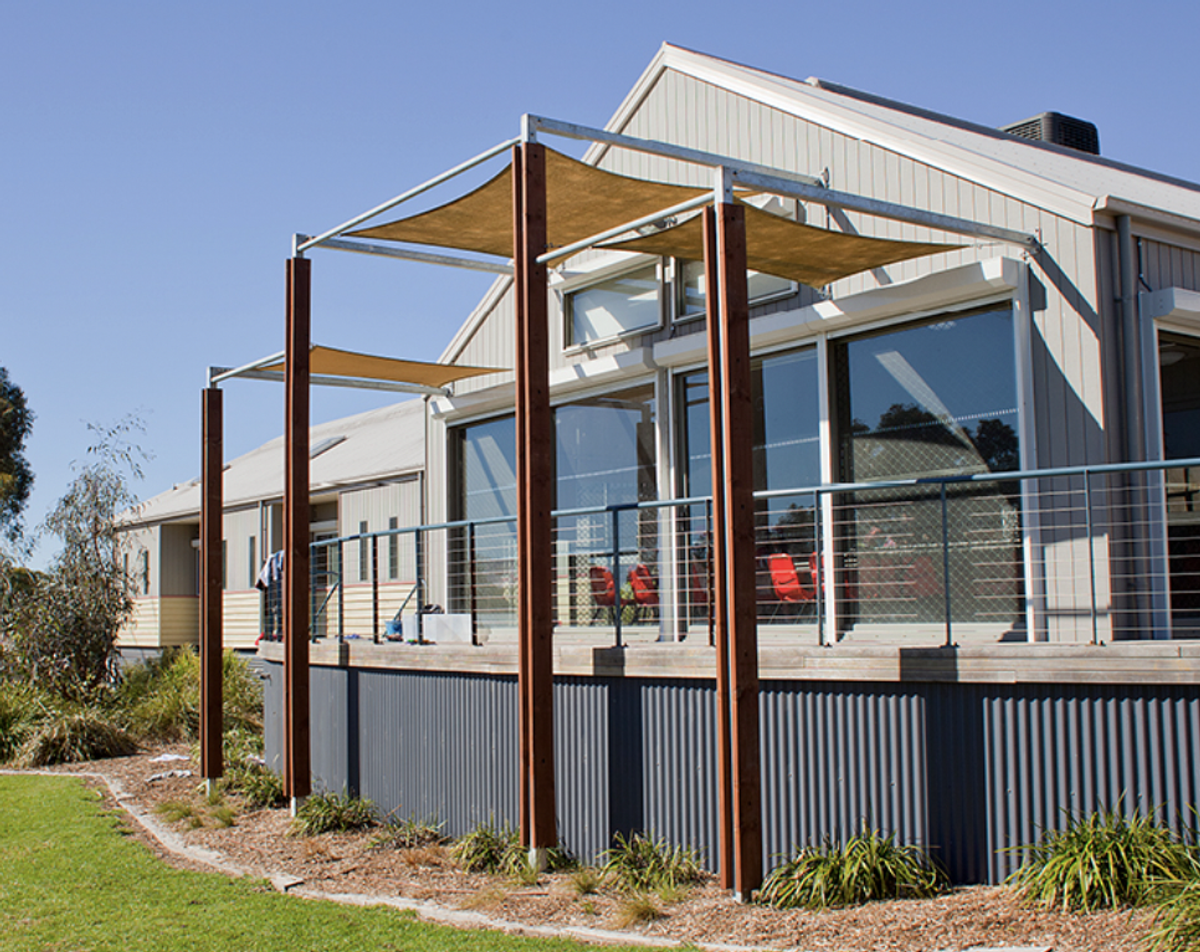
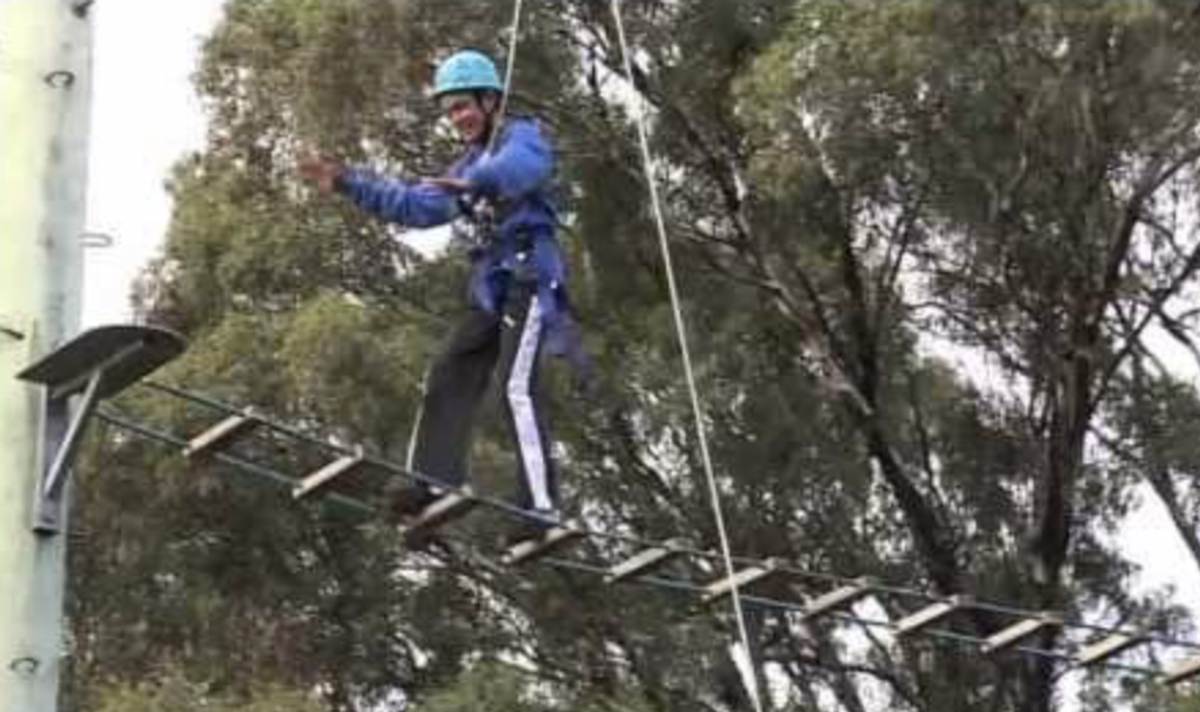
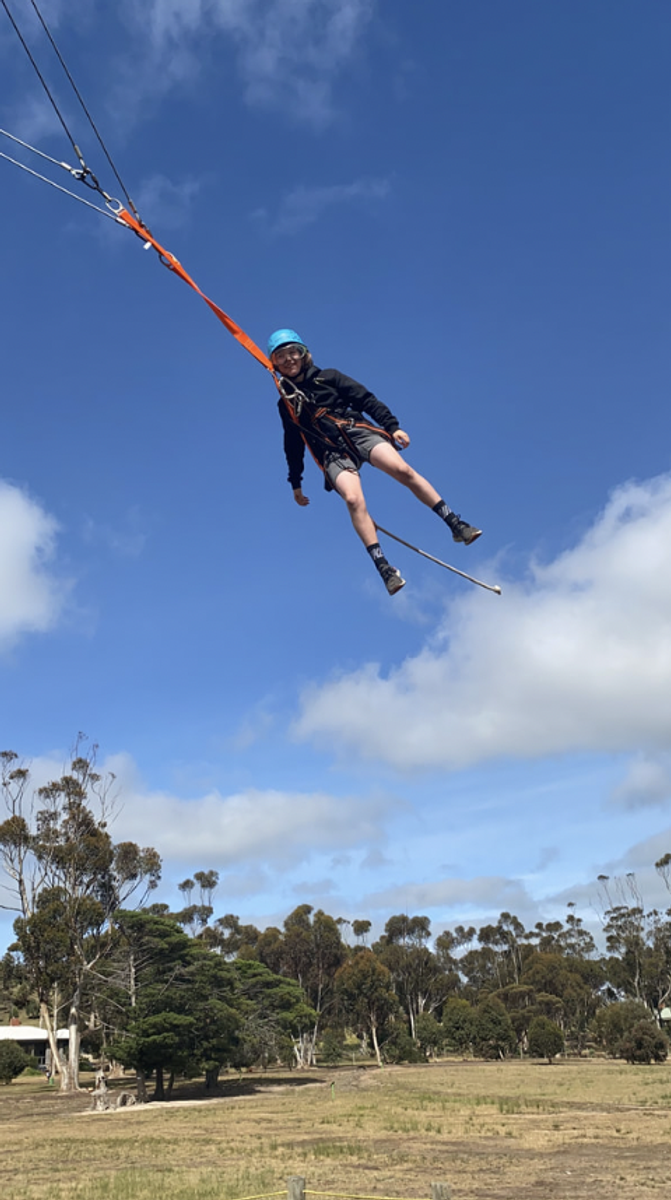



A reminder for parents to fill in the permission form on Operoo.
Last term, we celebrated the diversity of our Sacred Heart family.
Cath Palmer
Learning and Teaching Leader
Faith Life Leader
cpalmer@shnewport.catholic.edu.au
Last year we started to implement a spelling program, SMART Spelling, to improve student capabilities and differentiate instruction. This approach is an evidence based program by Michelle Hutchinson and was designed to support teachers in the explicit, systematic teaching of spelling. It includes a scope and sequence, beginning from Prep to Year 6. It is being used in our Years 2-6 classes as our Preps and Year Ones are targeting spelling capabilities through the MultiLit program (as outlined in the Term 1 Week 4 newsletter).
SMART Spelling teaches through patterns and regularity. By following a consistent pattern with the weekly target words, students will be better supported to relieve the possibility of cognitive overload. By doing so, students are not overloaded as they learn and have a better chance of retaining new knowledge. Each week a new set of words is introduced. Teachers choose a range of words (from simple to complex) from a suggested list in the SMART Spelling manual. Students are then guided to choose from that list, to meet different needs. Teachers use their professional knowledge to give meaningful feedback to students about their spelling in writing, teaching at the point of need. Spelling rules are taught in the context of words in a way that builds on learning from previous years. Visual displays are important so that students can reference them when needed and each classroom will have a space dedicated to this. This display is from 4K.
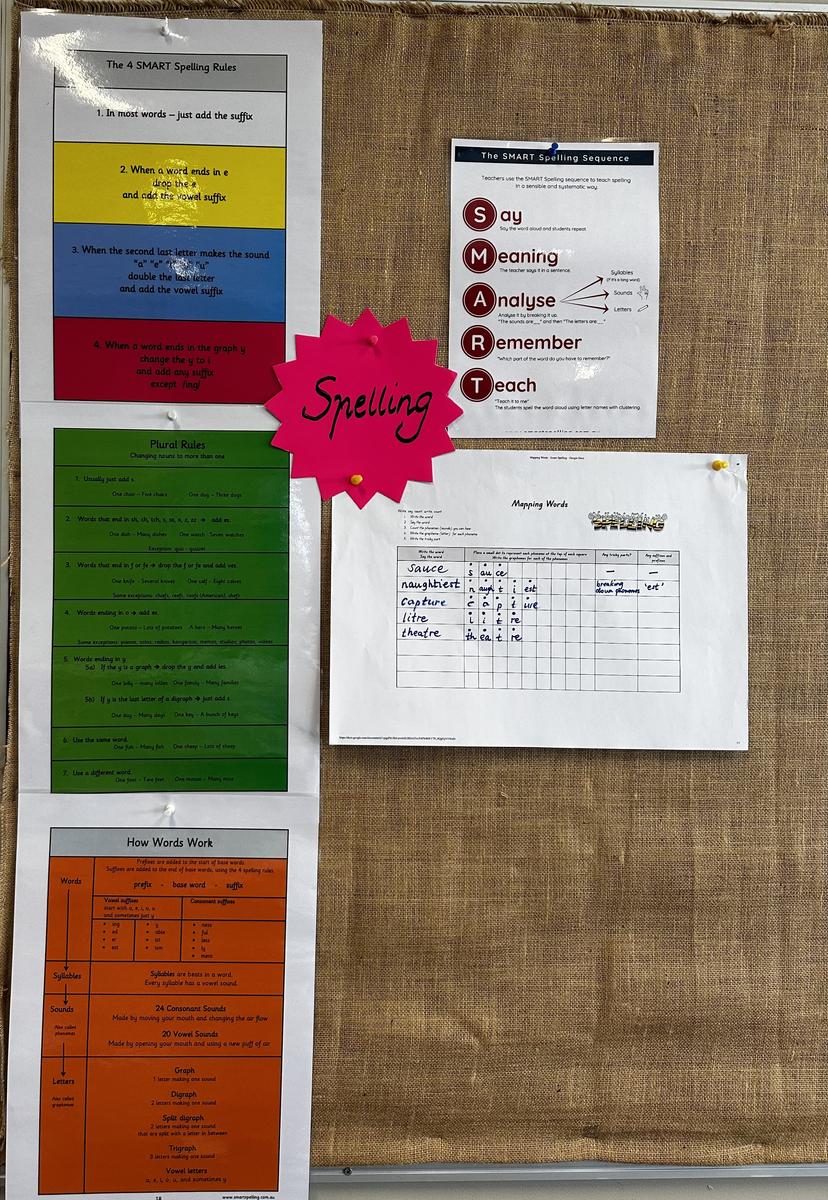

The SMART Spelling process follows the following sequence to teach words to students. It stands for:
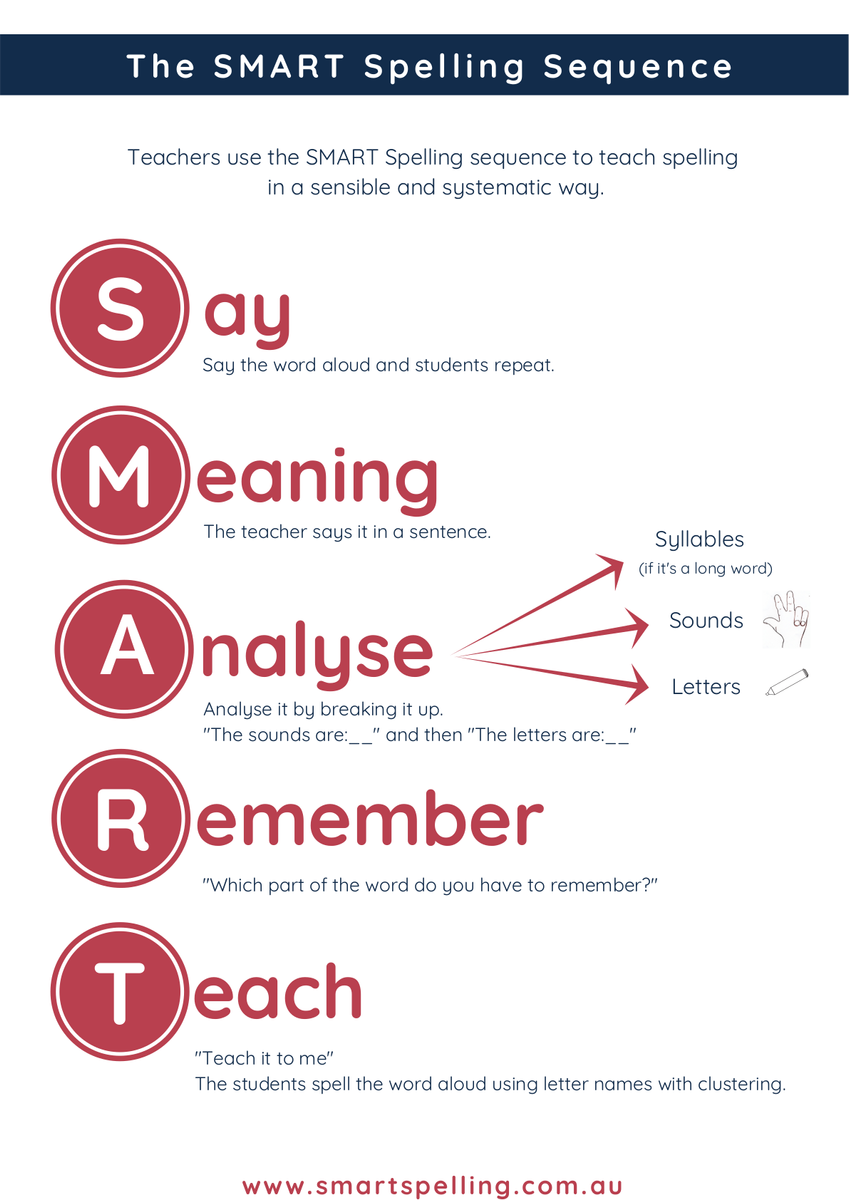

Two areas of important knowledge students need to develop to become independent spellers are phonological knowledge and orthographic knowledge. Phonological knowledge is mainly to do with sounds. It involves being able to break words into syllables and individual phonemes (sounds). Orthographic knowledge is mainly to do with letters. It is a visual skill that involves choosing the correct letter(s) that make a sound in a word.
Students also will focus on morphemic knowledge (how prefixes and suffixes can change a base word) and etymological knowledge (the study of where words come from) when appropriate.
Students will bring their focus words home each Monday and will have homework activities to complete two to four times a week. Please reach out to myself or your child’s teacher if you have any questions.
Sue Burke
English Leader
sburke@shnewport.catholic.edu.au